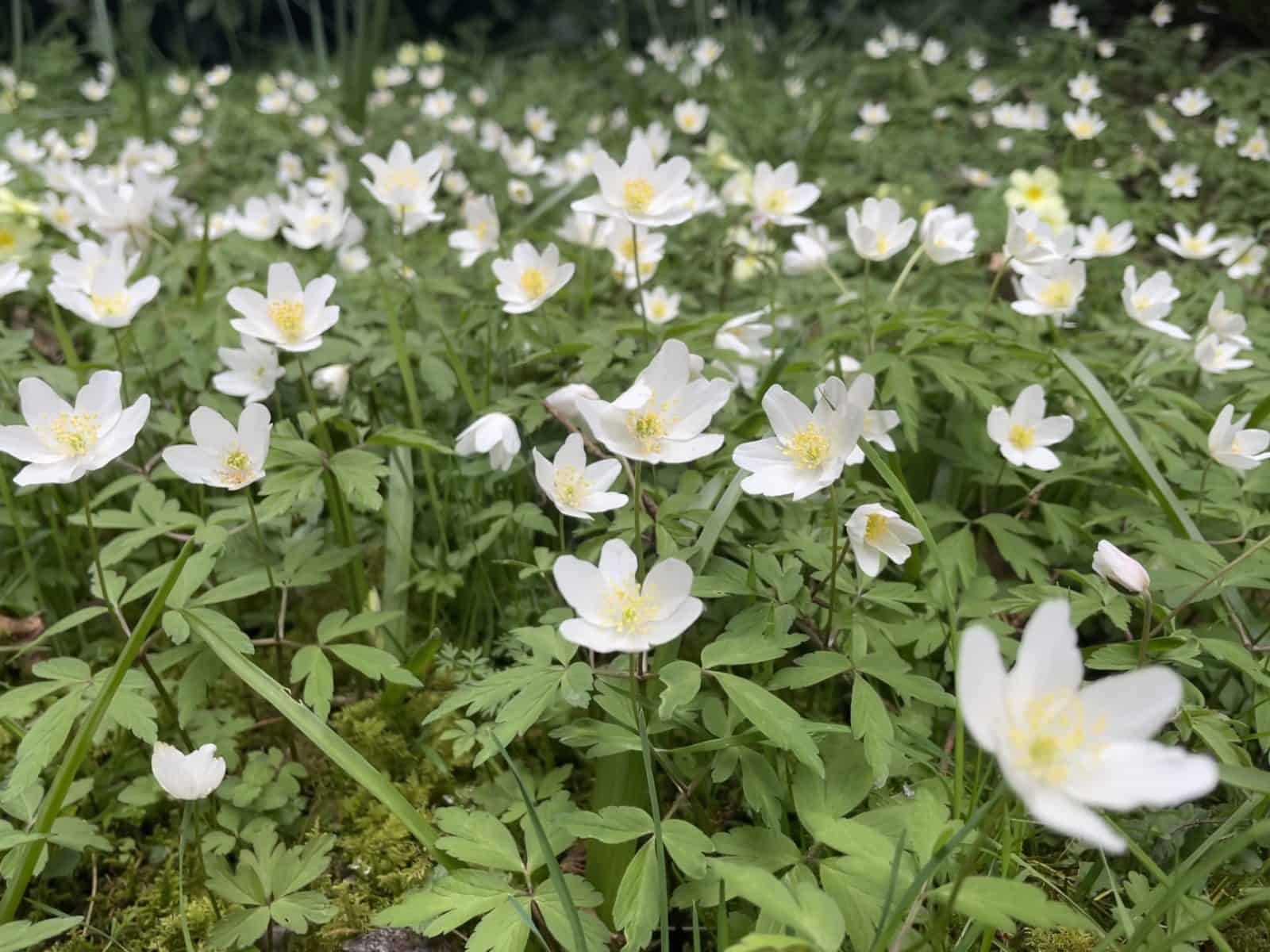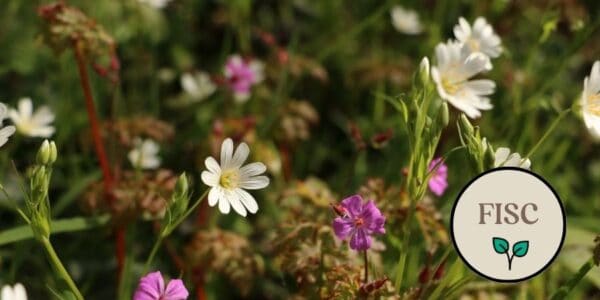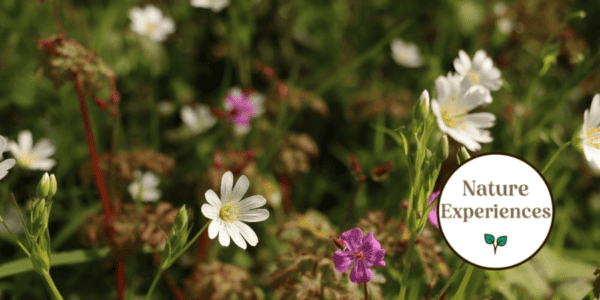Develop your botanical knowledge as you begin to explore the most common UK wildflower families in this beginner to intermediate online course. Becoming familiar with the most common families is a great way to start your botanical identification journey.
Wildflowers colour the British landscape, they are incredibly diverse with over 3000 species in the UK.
What is covered in this course?
- Identify the key distinguishing features of – Rosaceae (rose), Ranunculaceae (buttercup), Caryophyllaceae (campion), Brassicaceae (cabbage) and Fabaceae (pea).
- Identify the key distinguishing features of – Apiaceae (carrot), Asteraceae (daisy), Lamiaceae (dead-nettle), Plantaginaceae (plantain) and Orchidaceae (orchid).
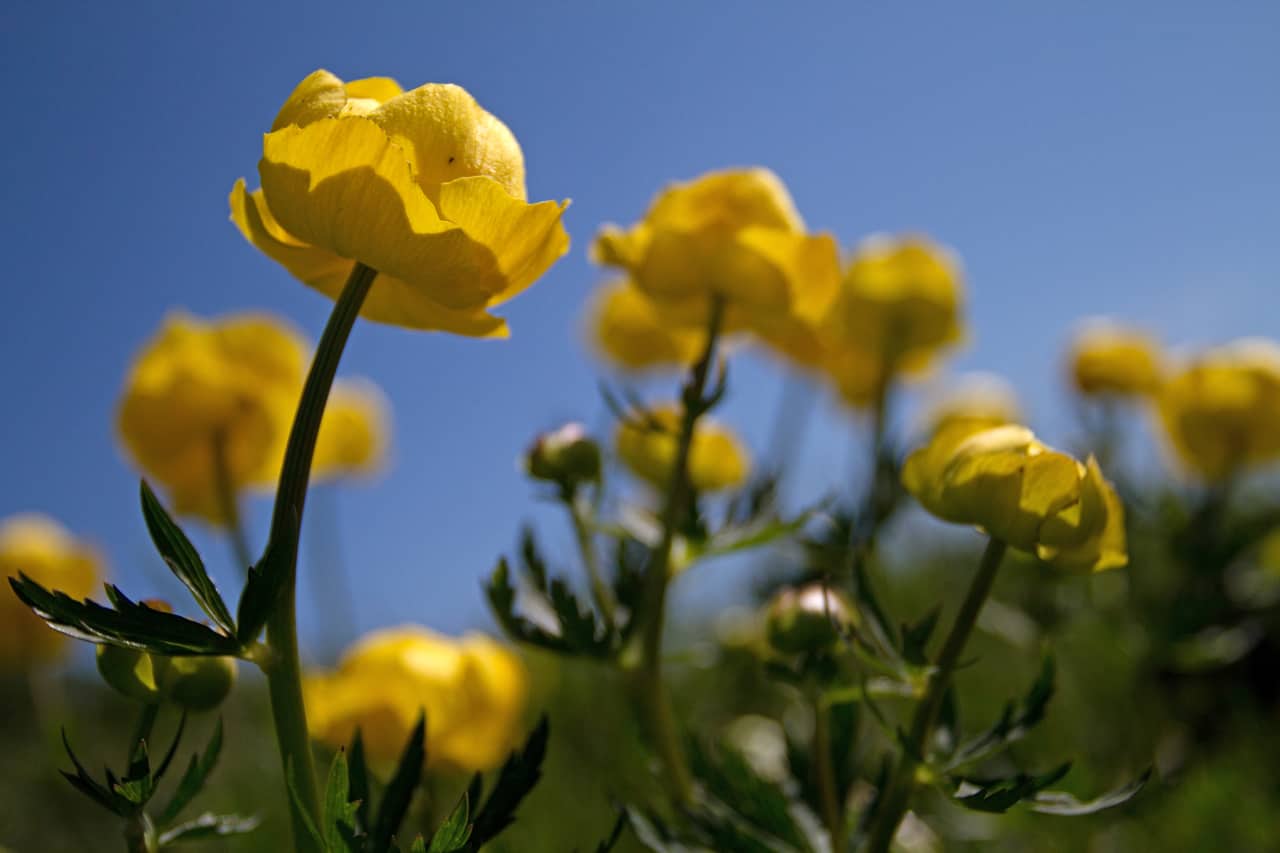
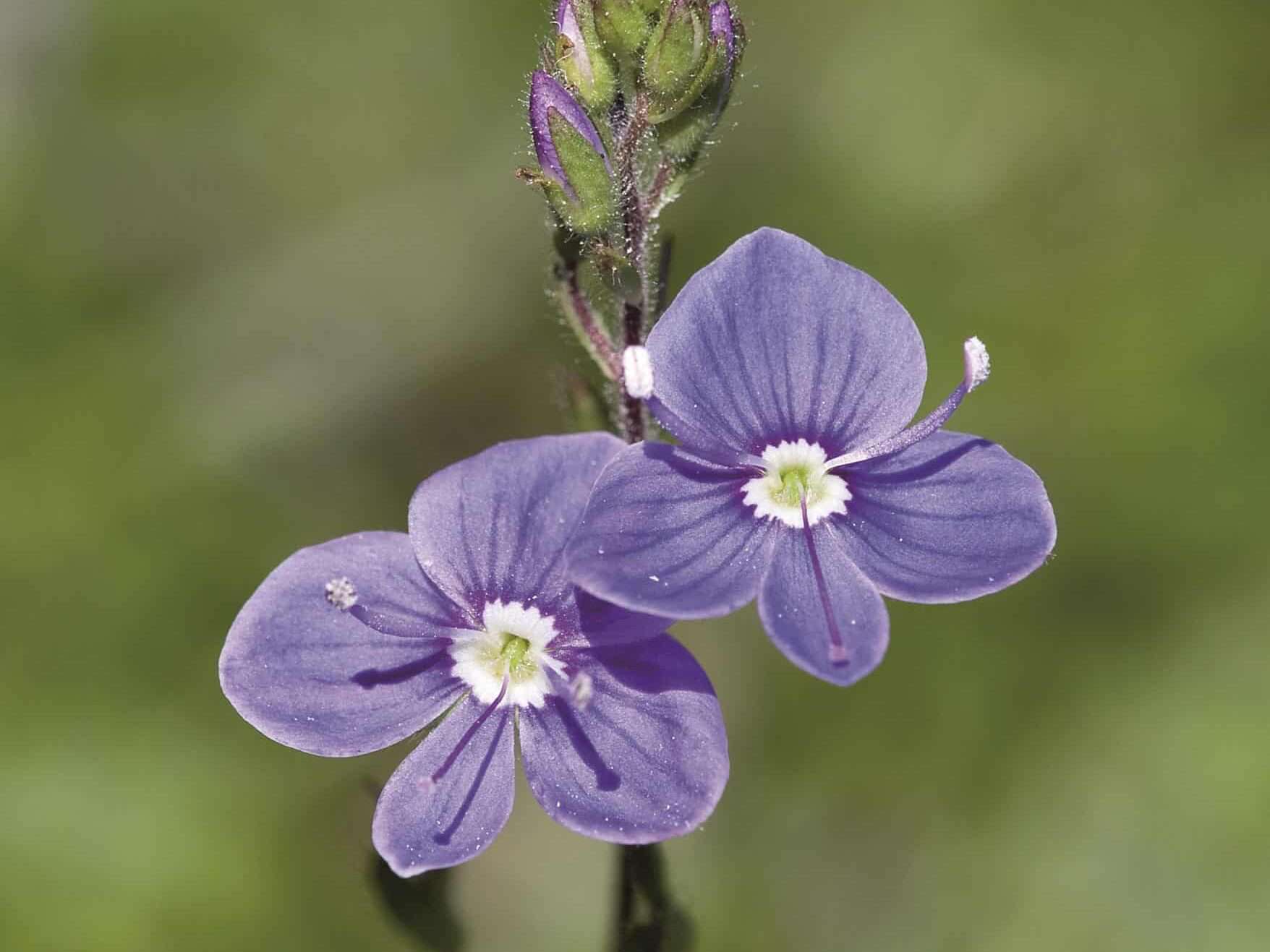
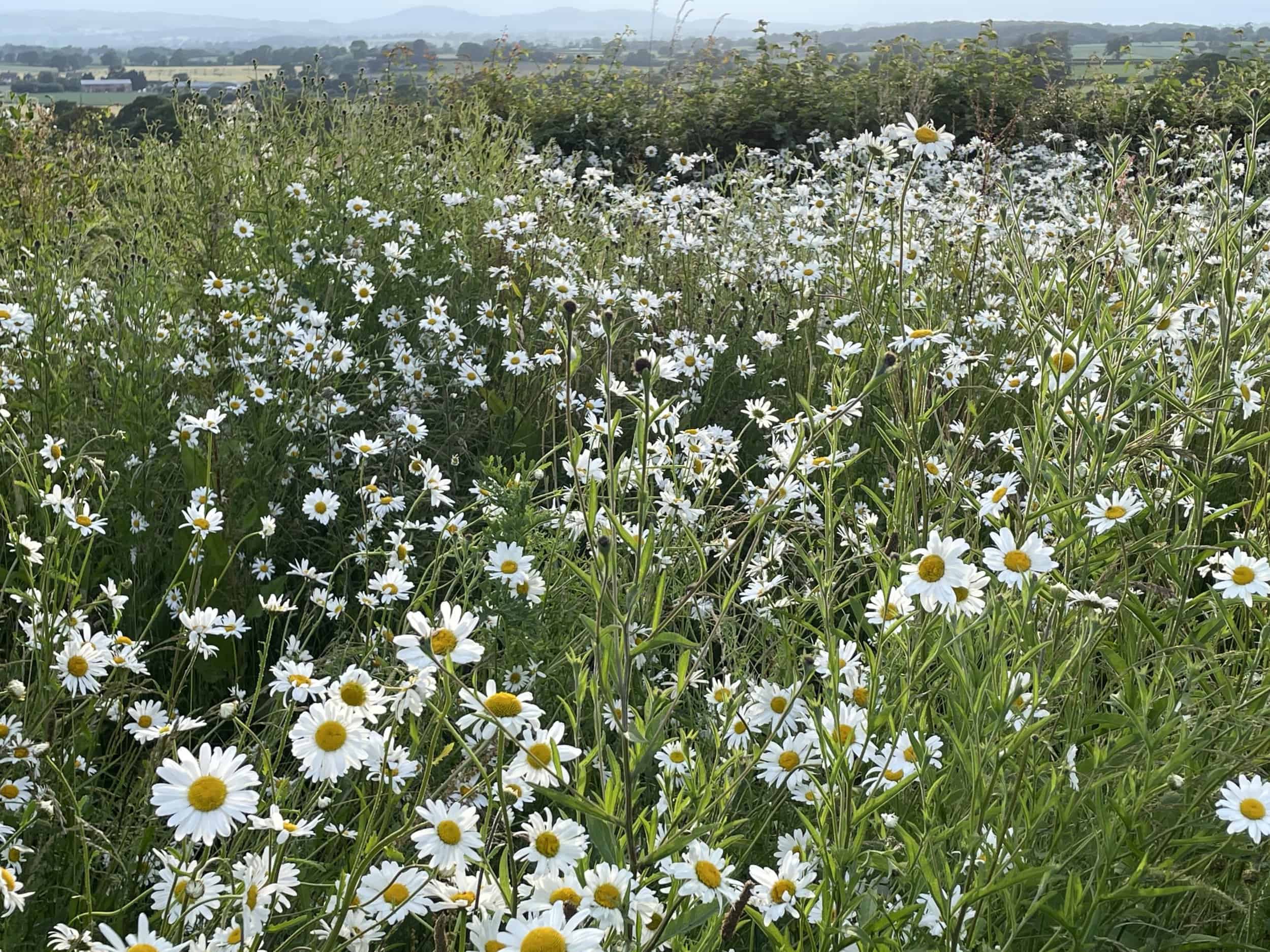
Read More
In this beginner/intermediate course, you will look at the key characteristics of the 10 most common wildflower families found in the UK. Our learner-friendly online format will lead you through learning how to identify families of wildflowers and becoming confident in making connections between related species. You will learn the key features of each family, their typical habitat, when to see them and be able to recognise species within each. The families covered within this course account for 45% of wildflower species in the UK.
This level 2/3 course is next in the series of our Wildflower framework and is a perfect progression from our level 2 Discovering Botany online course.
This is a 2-week online course covering 2 topics, for which you will complete a variety of self-led online resources and activities. Each topic is then concluded with an interactive Zoom workshop to complement the online content. Time commitment is approximately 2-3 hours a week and an E-certificate is provided upon completion.
By the end of the course, you will be able to:
- Understand why identifying key family characteristics of a plant is a useful tool to work towards identifying a plant to species-level.
- List the key features of the 10 most common wildflower families
- Identify common species within the families covered
- Share this knowledge with friends, family and fellow volunteers.
Who Should Attend? – Budding writers, Nature enthusiasts, Students, Rangers, Early career ecologists.
Knowledge Level – Introductory. Level descriptors can be found on the following webpage: Framework and Course Level Descriptors
Prior Knowledge – No existing knowledge or experience is needed for this course. Just a willingness to contribute and learn.
Understand how our online courses are delivered
Live Webinar Information
There are 2 webinars for this course, taking place at the end of each week. Please see the date listing below for the day and time.
Please note – webinars will be recorded and uploaded to the virtual learning platform for learners unable to attend.
About the Tutor
Ian Powell
Ian Powell is a former ecology tutor with the Field Studies Council at Slapton Ley and on overseas courses to South America. He now teaches undergraduate and masters courses in conservation biology at Edge Hill University and carries out botanical and butterfly surveys and research in the Yorkshire Dales National Park
Example Timetable
Week 1: Identify the key distinguishing features of - Rosaceae (rose), Ranunculaceae (buttercup), Caryophyllaceae (campion), Brassicaceae (cabbage) and Fabaceae (pea).
Self-study material available from the start date.
Week 1 Live Webinar at the end of week 1
Week 2: Identify the key distinguishing features of – Apiaceae (carrot), Asteraceae (daisy), Lamiaceae (dead-nettle), Plantaginaceae (plantain) and Orchidaceae (orchid).
Self-study material available after week 1 webinar
Week 2 Live Webinar: at the end of week 2
The final deadline to complete any outstanding assignments and self-study components 2 weeks after the final webinar
Time commitment: This course will require approximately 2-3 hours of your time each week. This includes covering course materials on our Moodle learning platform and the Zoom session.
What's Included
The course has been carefully created to help you continue to build and develop your knowledge as the course progresses. With content crafted to the online Moodle Platform and bespoke to the Field Studies Council.
The course includes:
- 45-minute interactive weekly Zoom workshops to connect with the tutor and other participants
- Expert tuition for which the Field Studies Council is renowned
- Activities to work on independently in advance of each Zoom workshop
- Tailored course completion certificate
Once registered, you will follow well-illustrated, user-friendly ’books’ to pick up knowledge. Quizzes and skill checks will give you instant feedback on your learning. Forums give students the chance to interact with each other as well as a place to share work.
Bursaries and Subsidies
Student Discount
This course is eligible for a student discount. If you are a current student, please use discount code BioStudent20 at checkout for 20% off all Biodiversity courses.
Natural History Bursaries
There are a number of natural history bursaries available to help with the cost of your course. To find out if you and your chosen course are eligible, read more here.
Before You Attend
Accessing Your Course
- Once you sign up you’ll receive an email at least 24 hours in advance of the course opening with details of how to access our easy-to-use platform, Moodle.
- Moodle can be accessed through a browser or an app.
- Webinars are via Zoom so you won’t need any new software to attend
Recommended Devices
It is recommended that you access your course through a PC or laptop. Please be aware that there will be reduced functionality if you decide to access the course through a tablet or smartphone. The Field Studies Council is unable to email content directly to you.
Opportunities to attend this course
-
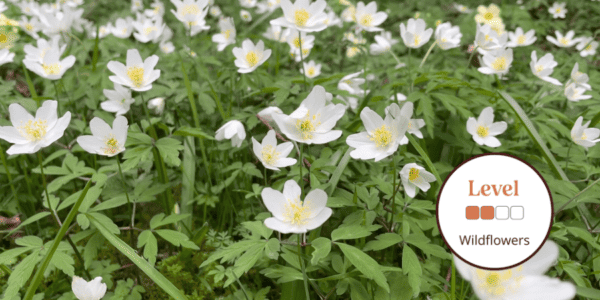
Wed 08, May 2024 - Wed 05, June 2024
The webinars will take place on Wednesdays 13:00 pm-13:45 pm on the following dates:
- Week 1: 15th May 2024
- Week 2: 22nd May 2024
-

Wed 19, June 2024 - Wed 17, July 2024
The webinars will take place on Wednesdays 13:00 pm-13:45 pm on the following dates:
- Week 1: 26th June 2024
- Week 2: 3rd July 2024
No current dates for this course? Click here to view all the upcoming Natural History courses.
Progress Your Learning
This is a training course from the Field Studies Council, delivered by expert tutors with an approachable learning style. After attending this course, you may like to progress your learning with further relevant courses or branch out into other areas of natural history. The Field Studies Council offers both online and in person courses, so you can choose the learning style that suits you best.
The course gives you the opportunity to immerse yourself in a new subject and acquire novel skills. Our online portal gives you time to study at your own pace and fit the lessons around your own schedule.
If you have any questions about our online courses please check our Frequently Asked Questions
Please email [email protected] if you have any questions.
Group Bookings Made Easy
If you have a group of 10 or more individuals wanting to complete one of our courses, our team are available to discuss your options – from discounts to private team courses. Find out more!
You can rest assured that the absolute best content from an expert in environmental education will be at your fingertips. In choosing a Field Studies Council course, you will be joining thousands of people who learn with us each year.

